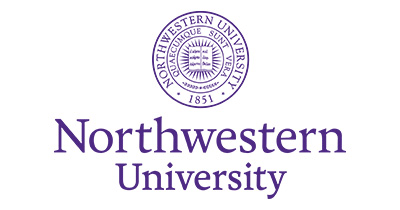Having taught at Northwestern for decades, and designing courses from the position of a working writer and translator and critic, I feel I will be especially engaged in 2019-20.
The changes in contemporary American literature cultures over the last dozen years or more have been remarkable. These years have been of ever-present social injustice; desperate need for humane rather than oppressive reforms in so many institutional structures; technocratic, bureaucratic and legislative hostility to the arts and humanities and especially now toward science as well; and extraordinary political, social and environmental changes–some, but all too few, triumphantly for the better, and many for the worse. That’s the context of classroom discussion as it is of everything else; even if it’s not the central topic of such discussions in the kinds of courses I teach, it’s always there, right outside the door, and inside us all in our continuing formation. (I see formation as both the imposed structures of our thinking and identity and also a lifelong active opportunity.)
In fall 2019, in our Litowitz Creative Writing Graduate Program (MFA+MA), I’ll be teaching a course on how to work–not about the craft of writing but instead about how we use our own resources, our intuition, our interests, our passions, our strengths, as writers, in order to discover what it is that–as some would say–we feel called to write. Our contexts are so complex–the state and use of our language, in both its private and many public dimensions, including creative writing; our formation, our personal histories and the larger histories to which our histories belong; the social and political and juridical circumstances, constraints, failures, successes, of our own moment; the massive American disparities and injustices in education and living conditions–all of which I see as having been in large part intended and executed quite deliberately by those with the power to do so, over many decades, and even centuries; the nature and degree of our interest in the past; our sense of the future. How to work as a writer is also about how to get a sense of where one is in all of that, and of how much of it one can take on, while at the same time remaining–or I should say–continuing to become–oneself, and not being a writer who does not manage to get past, get through, get over, the ready-made language and tropes and fashions and attitudes. And its about becoming; a writer who makes his/hers/their own choices and not the ready-made choices that have been prepared for us by others who are primarily interested in attracting us to what will make money for them.
Everything has two handles, Emerson warned, advising us to pick it up by the one that is best. (Or three handles, or more?–I wonder.) And perhaps that’s never seemed more urgent then now, in what seems like not a 24-hour “news cycle” but a 6-hour one, and everything, through social media, is transmitted everywhere by everyone…
I think that I absorbed very early that the artistic goal of the writer was to write something that would endure. Even if the appreciative audience for a work was not contemporary but longitudinal in time, it might be large. But now the intended audience seems, for many writers, to be this moment–scarcely any duration at all–yet a widespread attention to the work. Somewhere in between these two is a sweet spot of artistic ambition. And some writers can do both. But thinking about all this is itself can be a distraction in itself, and I think many writers, perhaps most, are well aware of this, and sensible about it. I recall a little pamphlet of poems by Pablo Neruda that I bought or was given somewhere, decades ago; the title was Somos muchos. We Are Many. Indeed we are, and there’s room for all, with all our different artistic ambitions.
Readings include works in creative nonfiction, essay, autobiography, poetry, fiction, journals, some object-relations psychoanalysis, and other sorts of texts. The writers we’re read include Katherine Mansfield, William Goyen, Helene Cixous, Clarice Lispector, Richard Wright, Christopher Bollas, Robert Duncan, Lorine Niedecker, Patricia Smith, Adrienne Rich, Grace Paley, Kimiko Hahn, Lucille Clifton, and others. The ten-week quarter goes by very fast!
The idea of the course is to acquire conceptual/emotional tools for deepening one’s own awareness of what one’s doing, while at the same time freeing intuition (the unconscious) to get through the obstacles in our conscious minds and in our concerns and anxieties about what we may think we are supposed to write or expected to write, or supposed or expected not to write…
I’ll also be teaching an even newer course (the very new Litowitz Program begins its second year, in September) for students in their second year, about how to get a sense–from what they have written, takes notes for, and planned, so far–of what sort of book-length manuscript they may be heading toward…
Then in spring 2020, I’ll teach my course in poetry translation, which I’ve been giving for many years, while allowing it to evolve. Last year’s students (undergraduate and graduate) brought a truly wonderful array of languages into the seminar–Arabic, Chinese, Hindi, Hungarian, Korean, Latin and Spanish. Each of them translated poems of their own choosing into English, from one of these languages. Our readings included essays on translation by poets, philosophers, literary historians, and translation theorists.

